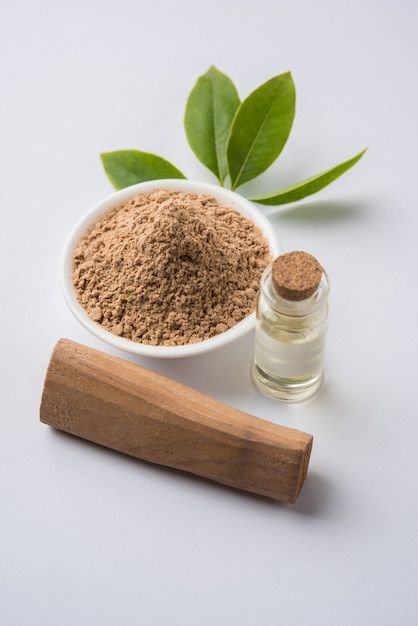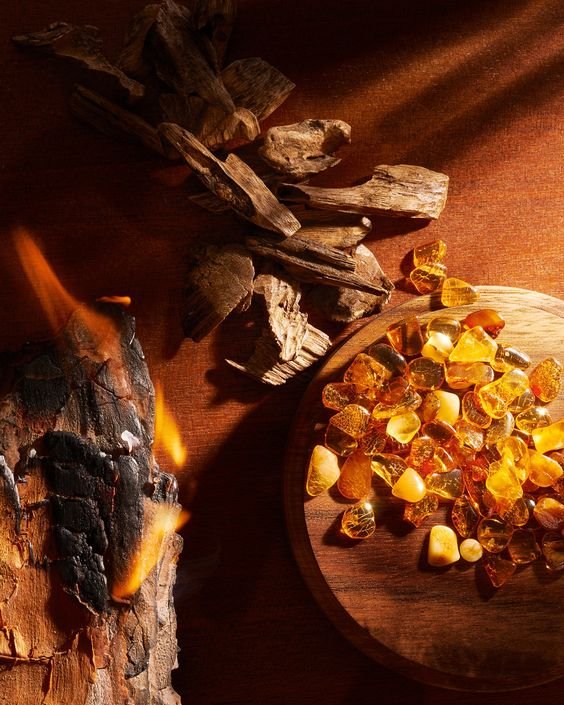Fragrance and Responsibility: Navigating the Eco-Ethical Imperatives of Perfumery

Fragrances have woven themselves into the tapestry of human history, from ancient rituals to modern indulgences. In ancient civilizations, perfumes held sacred significance, entwined with religious practices and personal adornment. Through the ages, fragrances evolved from symbols of luxury to everyday essentials, culminating in today’s era of mass production and consumption. In the midst of environmental challenges, consumers are striving to make a difference by choosing sustainable fragrances. They are opting for brands that prioritize natural and responsibly sourced ingredients, eco-friendly packaging, and cruelty-free practices. People look for certifications like “Certified Organic” and “Fair Trade” to ensure transparency and ethical standards.

Some sustainable fragrance brands are pioneering innovative approaches, upcycling waste materials into unique scent notes. By supporting these brands, consumers can not only indulge in their favorite scents but also contribute to a more sustainable future. Sustainability in perfumery is not merely a label but a journey towards a better future. By peeling back the layers of marketing rhetoric and embracing transparency, one can navigate the fragrant landscape with confidence, knowing that one’s choices contribute to a more sustainable and ethical perfume industry. Let’s embark on this scented journey together, where fragrance and sustainability intertwine to create a brighter tomorrow.
Sustainability in perfumery encompasses every aspect of the creation process, ensuring scents captivate the senses while maintaining a minimal environmental footprint. From the ethical sourcing of raw materials to thoughtful packaging, each decision underscores our commitment to the planet. While the original intention is commendable, the implementation of these concepts and the lack of transparency in terms of the means used are unfortunately more akin to a form of greenwashing to make people feel less guilty, as can be observed in the food sector.

In recent years, the perfume industry has witnessed a surge in eco-responsible claims and labels. Terms like “eco-responsible perfume,” “vegan perfume,” and “natural perfume” are increasingly plastered across products, promising sustainability and ethical practices. However, beneath the surface lies a complex web of marketing strategies and oversimplifications.
A prime example is the “eco-responsible perfume” filter on certain websites, which seems to include almost all current best-sellers. However, the criteria for such labeling remain vague, leaving consumers in the dark about the true sustainability of these products. Similarly, the “vegan perfume” filter fails to acknowledge that most perfumes today already exclude animal ingredients, while the “natural perfume” label lacks clarity on what percentage of ingredients are actually sourced naturally. The perfume industry, with its market worth nearly 35 billion dollars and predicted to double in the coming years, stands at a crossroads of growth and sustainability. While the concept of sustainable development emerged in the 20th century, its application within perfumery remains elusive.
The emphasis on eco-responsibility often overlooks the social dimension of sustainable development. Are these products truly beneficial to the communities involved in their production? Questions regarding labor practices and fair wages linger beneath the surface of eco-friendly packaging and responsibly sourced ingredients. The perfume industry is no more just about luxurious scents and glamorous packaging; it’s also about the responsible sourcing of ingredients that goes into creating those fragrances. With a large global market value, the perfume industry holds significant sway in both the economic and environmental realms. Ethical sourcing, therefore, becomes paramount in ensuring that the industry contributes positively to the world. Let’s delve into the various dimensions of ethical sourcing and how it’s shaping the perfume industry today.

Natural ingredients, such as essential oils, are often lauded for their sustainability compared to synthetic fragrance compounds. However, the sourcing of these natural ingredients must be done responsibly to ensure minimal environmental impact. Synthetic compounds, while sometimes criticized for their ecological footprint, can offer alternatives that reduce strain on natural resources when sourced ethically and responsibly.
Choosing organic ingredients means opting for products produced without synthetic pesticides, herbicides, or fertilizers. This not only reduces chemical exposure but also supports environmentally friendly farming practices. Fair Trade certification ensures that workers receive fair wages and work in safe conditions, promoting social responsibility and ethical labor practices throughout the supply chain.
Sourcing ingredients locally can significantly reduce the carbon footprint associated with transportation. By supporting local producers, perfume brands can also contribute to the economic development of their communities while fostering relationships built on trust and transparency. For those interested in crafting their own fragrances sustainably, several resources are available. Local farmers markets often offer essential oils and carrier oils sourced directly from nearby producers. Ethical online retailers specialize in sustainable and ethical products, providing a wide range of ingredients for DIY perfumery. Additionally, artisanal producers prioritize sustainability and ethical practices, offering unique and high-quality ingredients for fragrance creation.

Ethical sourcing in the perfume industry extends beyond environmental considerations. It encompasses social and economic dimensions, ensuring fair treatment of workers and support for local communities. By prioritizing ethical sourcing practices, perfume brands can reduce their ecological footprint, promote social responsibility, and contribute to positive economic outcomes for all stakeholders involved.
While ethical sourcing presents numerous benefits, it also comes with its share of challenges. Ensuring quality, safety, and traceability of natural ingredients can be complex and resource-intensive. However, with technological innovations and collaborative efforts, these challenges can be overcome. Perfume businesses can leverage technology, innovation, and collaboration to enhance transparency, traceability, and accountability throughout the supply chain.

The perfume industry is witnessing several trends in natural fragrance ingredients that align with ethical sourcing principles. From the adoption of biodegradable ingredients to the embrace of exotic and rare botanicals, perfumers are exploring innovative ways to create sustainable and authentic fragrances. Transparency in ingredient sourcing, innovation in green chemistry, and personalization in fragrance creation are also shaping the future of the perfume industry, driving towards a more ethical and sustainable approach to perfumery.
Ethical sourcing is not just a buzzword; it’s a fundamental principle that guides the perfume industry towards a more sustainable and responsible future. By prioritizing environmental stewardship, social responsibility, and economic viability, perfume brands can create fragrances that not only smell good but also do good for the planet and its people. As consumers increasingly demand transparency and accountability, ethical sourcing will continue to be a driving force in shaping the fragrance industry for years to come.

In the world of mainstream fragrances, where staple scents dominate the market, niche perfumes stand out as beacons of exclusivity and artistry. Crafted with meticulous attention to detail and a focus on high-quality ingredients, niche perfumes offer a sensory experience unlike any other. Let’s explore the allure of niche perfumes and the factors driving their growing popularity in today’s fragrance landscape.
Niche perfumes, often referred to as luxury fragrances, cater to a select audience of connoisseurs and aficionados who appreciate the finer things in life. Unlike mass-produced mainstream perfumes, niche fragrances are crafted in smaller batches by independent perfumers or niche perfume houses. These artisanal creations embody a sense of luxury, elegance, and individuality, offering wearers a unique olfactory journey.
In recent years, niche perfumes have witnessed a surge in popularity, fueled by changing consumer preferences and increasing demand for premium and luxury products. Social media platforms and online beauty communities have played a significant role in promoting niche perfumes to a wider audience, creating awareness and sparking curiosity among fragrance enthusiasts.
Natural and organic ingredients have become a focal point in the niche perfume market, reflecting consumers’ growing preference for sustainable and eco-friendly products. Many niche perfume brands specialize in using botanical essences and essential oils to create fragrances that are both luxurious and environmentally conscious.

Another emerging trend is the demand for personalized or bespoke perfumes, allowing customers to create their own signature scents tailored to their individual preferences. This trend caters to individuals seeking a truly unique fragrance experience that reflects their personal style and personality.
Societal shifts towards environmental consciousness and support for small businesses have also contributed to the rise of niche perfumes. Campaigns urging consumers to “buy local” and support indie fragrance houses align with the values of niche perfumery, which emphasizes craftsmanship, authenticity, and community.
Moreover, niche perfumes challenge traditional gender norms in the fragrance industry by offering gender-neutral scents that appeal to a diverse range of consumers. This inclusive approach resonates with younger generations who seek products that reflect their values and beliefs.
Natural niche fragrances distinguish themselves from conventional perfumes by eschewing harmful chemicals in favor of botanical ingredients. Crafted with essential oils, absolutes, and natural extracts, these perfumes offer a healthier and more sustainable alternative to synthetic fragrances. By embracing natural ingredients, niche perfumers create scents that not only captivate the senses but also contribute to a cleaner and greener planet.

As the niche perfume market continues to thrive, driven by consumer demand for luxury, individuality, and sustainability, it is poised to shape the future of the fragrance industry. With a focus on craftsmanship, authenticity, and environmental consciousness, niche perfumes offer wearers a sensory experience that transcends the ordinary. Whether exploring the latest trends or indulging in timeless classics, niche perfumes invite us to embark on a fragrant journey of discovery and delight.
The world of perfumery has witnessed a renaissance driven by both the above explained powerful movements: niche perfumery and natural perfumery. These movements, born out of a desire for authenticity, individuality, and sustainability, have reshaped the fragrance landscape, offering consumers a diverse array of olfactory experiences that celebrate craftsmanship, artistry, and the beauty of nature.

Niche perfumery represents a departure from the mass-produced, commercially driven fragrances that dominate the market. Instead, niche perfumes are crafted in smaller batches by independent perfumers or artisanal fragrance houses. They prioritize quality over quantity, using high-quality ingredients and innovative techniques to create scents that are distinctive, luxurious, and evocative.
One of the hallmarks of niche perfumery is its focus on storytelling. Each fragrance is a work of art, carefully curated to evoke emotions, memories, and sensory experiences. Niche perfumers have the creative freedom to explore unconventional scent combinations, rare ingredients, and niche themes, resulting in perfumes that are truly unique and memorable.
The natural perfumery movement, on the other hand, is driven by a commitment to sustainability, environmental consciousness, and personal well-being. Natural perfumes are crafted using botanical ingredients such as essential oils, absolutes, and plant extracts, eschewing synthetic chemicals and additives commonly found in conventional fragrances.
Natural perfumers prioritize transparency and traceability, sourcing ingredients ethically and responsibly from sustainable suppliers. They embrace the beauty and complexity of nature, harnessing the therapeutic properties of botanicals to create fragrances that not only smell exquisite but also nourish the mind, body, and soul.

In recent years, there has been a convergence of the niche and natural perfumery movements, as consumers increasingly seek fragrances that are both luxurious and sustainable. Niche perfumers are incorporating natural ingredients into their formulations, while natural perfumers are exploring innovative techniques and creative expressions inspired by the niche aesthetic.
This intersection has given rise to a new generation of fragrances that combine the best of both worlds: the artistry and sophistication of niche perfumery with the purity and authenticity of natural ingredients. These perfumes offer wearers a sensory journey that transcends traditional boundaries, inviting them to connect with nature, art, and the essence of beauty.
The rise of niche and natural perfumery movements has had a profound impact on the fragrance industry, challenging conventional norms and inspiring a wave of creativity, innovation, and exploration. These movements have empowered consumers to embrace their individuality, express their values, and connect with fragrances that resonate with their lifestyles and beliefs. As the niche and natural perfumery movements continue to gain momentum, they are reshaping the future of fragrance, paving the way for a more diverse, inclusive, and sustainable industry. With each scent, they offer a glimpse into a world where beauty, art, and ethics converge, inviting us to celebrate the richness and complexity of the olfactory experience.


